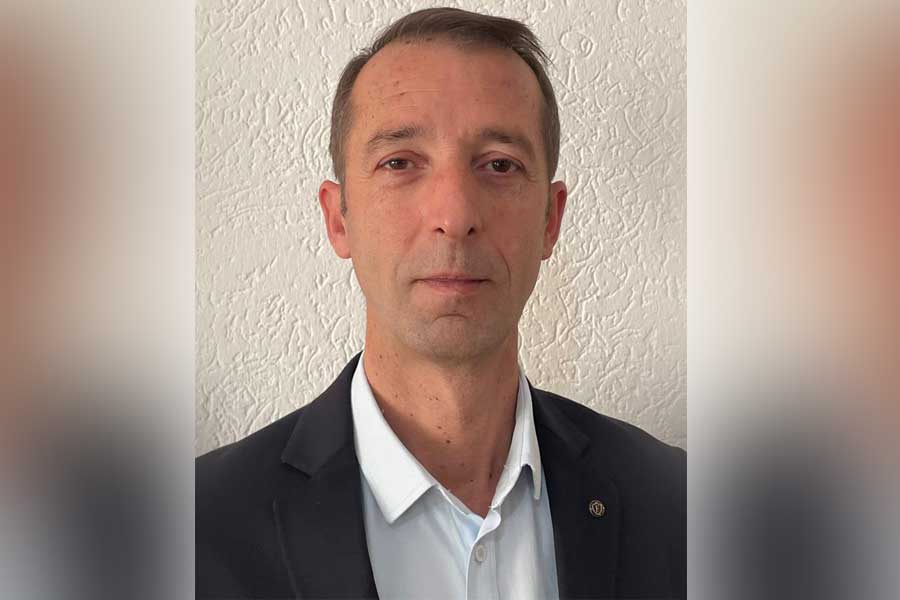
Batajnica should be the largest museum in Europe for the end of the 20th century and for the young generations of the whole world, says Dr. Enver Hoxha, at the same time author of the "XX Genocide" exhibition. While adding that this museum would be a great message for peace in Europe.
In an opinion, Hoxha writes that the construction of a museum in Batajnica would be a great message for the democratization of Serbian society from a "divine people" to a normal society with faith as desired, so that politics and religion do not cause genocidal destruction to the Balkan peoples and not to be an inspiration for dictatorial rulers (tyrants) to start wars for no reason, instead of working for the good of their people.
His full opinion:
Batajnica is a site in the vicinity of serbian capital Belgrade (Belgrade's terrace). This very location since 1950's of the XX century, served as a main military and police training center in former Yugoslavia, center for capacity building, citizen service and preparation to fight against the external aggression. This military-policewide polygon covering hundreds of hectares, became a strategic location for preparations for what became an extradition and deprivation of lives of countless former Yugoslav citizen (in Slovenia, Croatia, Bosnia and Herzegovina and Kosova). Belgrade leadership gave orders while well trained units hurrahed to commit atrocities in the terrain devastating everything that came in front, taking lives and devastating every material good. The terror caused by those units is difficult to be perceived by the imagination of a normal human being.
Barbaric extradition campaigns were reinforced by the paramilitary formations established to terrorise innocent population, for which in no circumstance have the authorities ever publicly accept the blame. Those units (protection corps according to Belgrade) engaged into four terrible war fairs, took thousands and thousands of lives in a most barbaric manner, despite the fact that all of this happened in front of the west respectively eyes of the western Europe!
Political leadership of Serbia, during the meetings, conferences and summits coquetted with international politicians, blamed other nations (of former Yugoslavia) for their non readiness to cooperation and peaceful solutions, etiquetted opponents as true national terrorists.Meantime, as the warfare grew so did devastation, atrocities, material destruction, killings, raping, massacres, abductions and even disappearance (hiding) of the bodies and the mass graves. Population suffered tremendously, displaced into mountains, in constant move from on location to other often in colons walked barefoot under permanent fear for their own and its families lives.
Those who were 'lucky enough' to escape from Yugoslavia and reach western Europe filled the asylum centers and saved their bare lives.
Western media's covered the front pages with tragedies coming from these areas and the harsh reality, by bringing stories of survivors for the western politician to understand the gravity of the matter and take actions in preventing bloodshed and expansion of warfare.Supported by the Serbian Orthodox Church, Belgrade political leadership perceived the belief of Serbian nation as a divine one, unlike others nations in former Yugoslavia.
Being in the advantage at battlefields due to holding reigns of Yugoslav administration and foreign service, the Serbs continued with the system of 'burned lands'. Massacres towards innocent civilians intensified day by day to the extend that perpetrator had to built a strategy on re-location of bodies and eventually mass graves. In its efforts to delete traces of the crimes committed, the Serbian state apparatus brought it to the front gates of Belgrade city in Batainica.
Exhumation in Batainica was conducted in the beginning of XXI century. Such actions tells a lot about national strategies (propagation of divinity) of the Serbian state apparatus intended for all other 'non divine' non-Serb population throughout centuries.Establishing a museum in Batajnica would be a great message for peace in Europe in XXI century, democratization of Serbian society and their transformation from a 'divine' into normal society, with genuine freedom of belief.
The institutions of religion and politics shall no longer be the instigators of genocidal acts towards other nations and should cease inspiring the authoritarian leaders (tyrants) to fuel more war-fares instead of securing well being and prosperity for all respective nations.
Batajnica should become the greatest European museum of peace, to serve as a reminder for the upcoming generations on historical events of XX century and educate generations to come, on restoration and preservation of peace! /Doctor Enver Hoxha is a Plastic Surgeon and author of the exhibition "Genocide XX", 2019/
